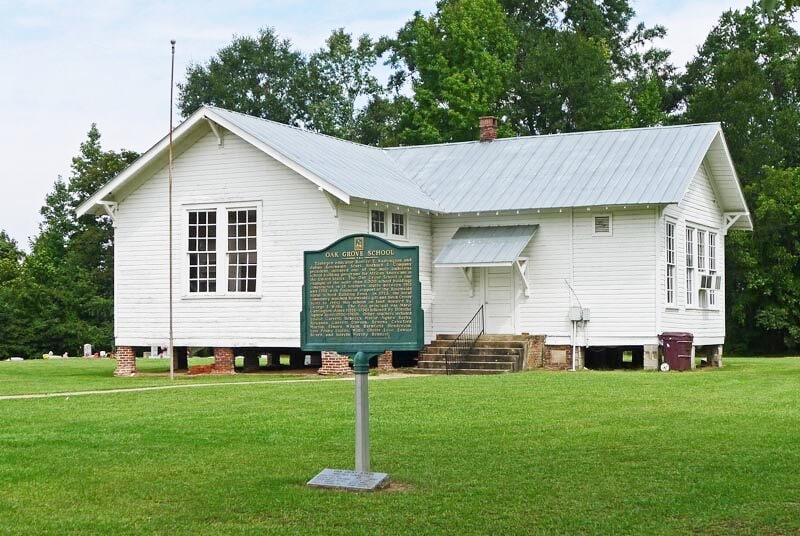By SPEAKIN’ OUT NEWS

GALLION, Ala. — Nearly a century after first opening its doors to African-American students during segregation, the Oak Grove School in Gallion, Hale County, has reopened as a community center and museum celebrating Alabama’s Black educational heritage.
Built in 1925 as part of the Rosenwald School program, Oak Grove was one of more than 5,000 schools constructed across the South to serve Black children when public education was segregated and unequal. The school officially reopened on October 25, following a year-long restoration led by local residents, preservationists, and the Hale County community.
The restored site now serves as both a museum and a gathering place, featuring exhibits that highlight the struggles and triumphs of Black education in rural Alabama. Inside, visitors can see original desks, chalkboards, and photographs from former students who once learned there.
“This reopening is not just about saving a building—it’s about honoring generations who believed education was their path to freedom,” said Mary Jackson, a member of the Oak Grove Preservation Committee.
The Rosenwald Schools were created through a groundbreaking partnership between Booker T. Washington of Tuskegee Institute and Julius Rosenwald, president of Sears, Roebuck and Co. Communities contributed land, labor, and funds to match Rosenwald’s grants, turning these schools into symbols of Black self-reliance and hope.
Local historian Dr. Leon Harris said Oak Grove’s restoration represents a vital link to Alabama’s past.
“This project restores not just a building, but a story of courage,” Harris said. “For Hale County and the Black Belt, preserving Rosenwald schools means preserving the foundation of African-American education.”
The museum’s opening drew former students, educators, and families from across the region. Organizers said they hope the site will serve as a heritage education center, inspiring young people to learn from the determination and unity that defined the Rosenwald legacy.

